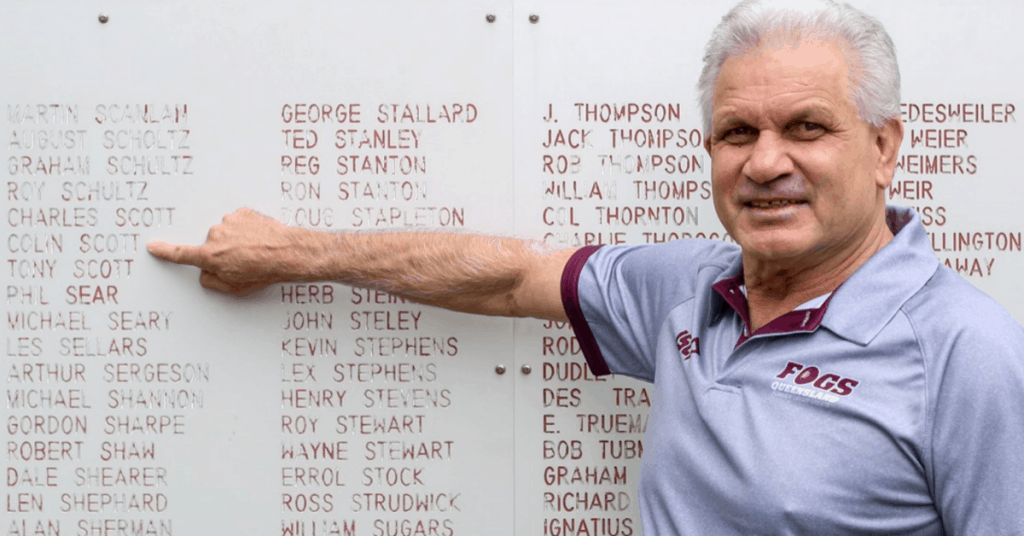via NRL.com – Joel Gould. When Maroons legend Colin Scott locked himself away in his bedroom for three weeks he knew he was facing the biggest battle of his life.
The 60-year-old emerged, after drinking 15 bottles of lime cordial for sustenance, determined to beat depression and not become one of the worst possible statistics.
For a man who played 17 Origins for Queensland and represented his country during a stellar career at fullback with Wynnum-Manly and the Broncos, it was hard to accept he had been bitten by the “black dog”.
Scott has told his inspirational story to NRL.com with the hope it can be an inspiration to others suffering the same plight.
Falling into a deep funk
Several months ago Scott was working with a Brisbane employment agency and helping young Indigenous men get their lives back on track and find work when he went into a deep funk.
“I woke up one morning and I felt deeply depressed,” Scott said.
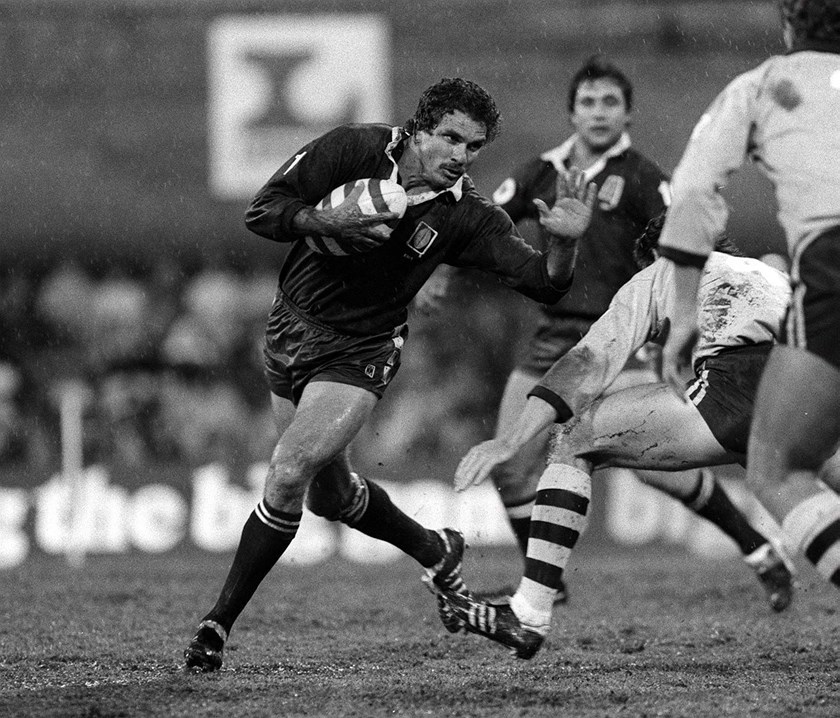
“I thought ‘why am I feeling like this’. The thoughts come on and you are just in an emotional and unstable state all the time. I shut myself off in my bedroom for three weeks and didn’t even move out of it. I was just thinking about negative stuff.
“During that time, and I counted every bottle, I drank 15 bottles of lime cordial.
“I know the feeling depressed people get because when I first started getting it my first thought was finding a way to do myself in. I couldn’t believe I could get in that state.
“You know how when you go to funerals and you feel sad or you face a sad emotional situation, but you get over it.
“Whereas with this, it stays with you. It doesn’t go away. I could be walking outside or talking to you, but in my mind I am thinking only negative thoughts.”
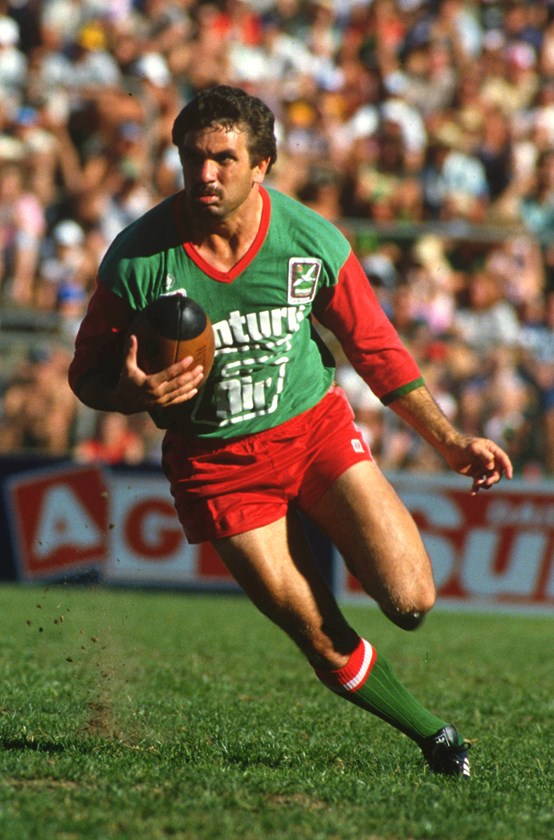
Another battle
Scott went to see his doctor after three weeks of isolation and the lime cordial had presented him with another battle to fight.
“When I went to see the doctor he diagnosed me with type two diabetes. He looked at me and said ‘normally people with your reading we send to hospital’,” Scott said.
“He gave me tablets and said no more cordial or sugar. I started drinking water and eating healthy. I always loved chicken so I am mostly a chicken and salad or chicken and vegie man these days.”
Power of positive thinking
Scott was also given medication for his depression but he said changing his mindset has been the key to his improved mental health.
“I did go to the doctor and got some tablets. I starting taking them, but I don’t like taking tablets so I am dealing with it myself because I know it is a mind thing,” he said.
“I try and do positive things and talking about it is one of the best things for you.
“I am getting on top of it, and I want to get on top of it because I want to be able to talk to people that are going through it about what the process is and what the thoughts are.
“It is up to you not to let it get a hold of you. Get out and get yourself active and get positive thoughts in your mind, but it is going to take time.
“I have never been a big drinker and I have never done drugs, but if you are doing drugs or alcohol it is going to make it worse because it is an emotional and very unstable thing.”
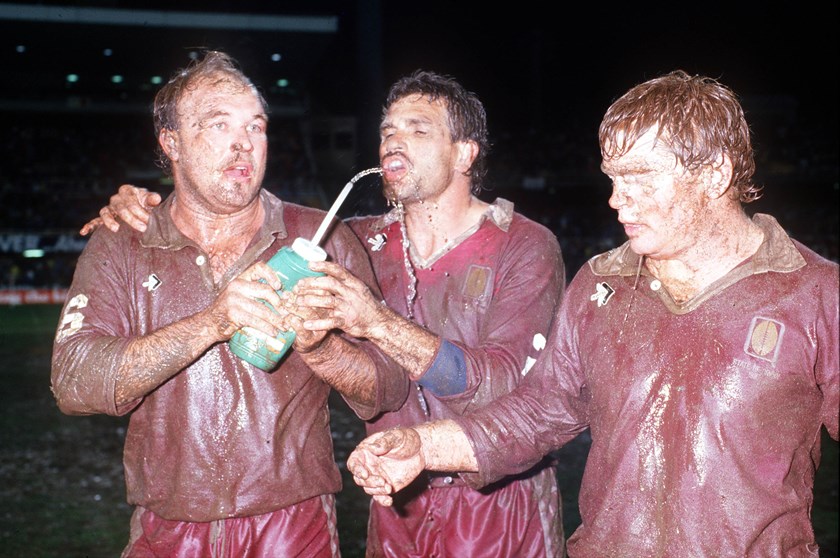
Scott was aware of the impacts of depression through his own mentoring work but never thought he would go through it because of what he had achieved in life and football.
“The truth is it can happen to anyone so I have taken it on as a challenge now,” he said.
“It is the same as what I did in rugby league. I say to myself ‘It is up to you now mate. There is someone there inside your head trying to bring you down. Stuff him. Get rid of him’.”
A new kind of role model
Scott is looked up to by many people as a hero. He does not seek adulation, but a kind word from a member of the public always has a powerful impact on him.
“The older ones recognise me. I go to the shopping centre and someone will pull me up and say ‘are you Colin Scott?’ and that really means a lot to me. It is a good feeling,” he said.
“I was never one to look for accolades but I always keep that in mind. I don’t want to be someone that takes his life after a good career and as someone that people looked up to.
“I want to be someone that has dealt with it and got on top of it. That is in my thoughts all the time now.
“When I do have bad thoughts I will go for a run or a walk.
I want to be someone that has dealt with it and got on top of it.Colin Scott
“I will think about the things I have done in my career … the good times, the State of Origins, the people I have met, the players I played with.
“I start thinking about my two kids. I have a 30-year-old son and my daughter is 31. When I do I think to myself ‘what are you doing, you idiot. Look at the life you’ve had. Get out there and help people and don’t be another statistic’.”
Miles a mate for life
For Scott, one of the wonderful benefits of a career in rugby league has been the great friends he has made. One of those is Maroons great Gene Miles, who Scott grew up with in Townsville and played the majority of his career alongside for Townsville Souths, Wynnum-Manly, Brisbane Broncos and Queensland.
Miles has been a rock and a sounding board for Scott as he battles his demons.
“It is an embarrassment thing and you don’t want to put it on your family or those close to you, but that makes it worse. It is important to talk about it and Gene is someone I can talk to about anything,” Scott said.
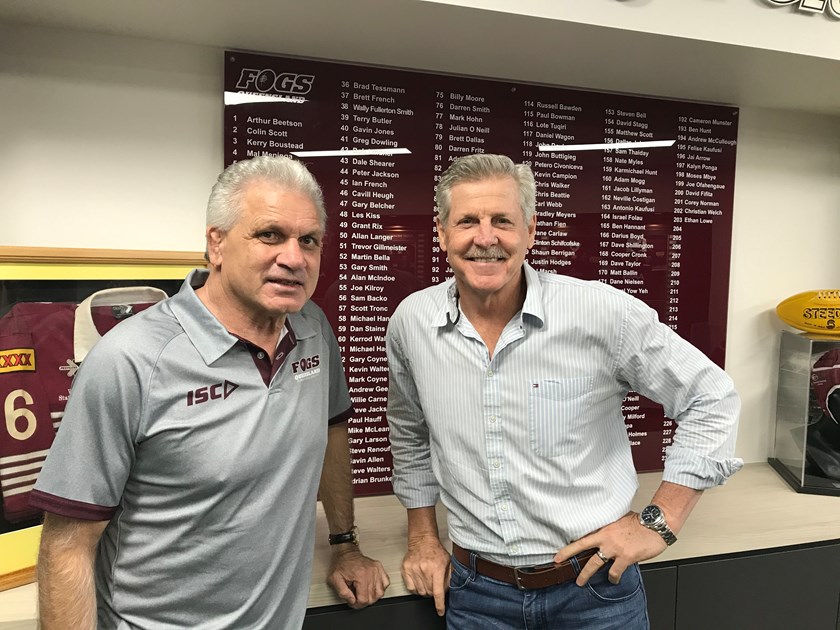
“We grew up together in Townsville and shared our thoughts, so he was one of the first guys I told.
“He has always kept in contact with me and is only a phone call or text message away.
“That is what it is all about, having that close connection with those you are close to. In the old days it was a sooky thing but now with the suicides in our society it is a very important issue. I want to let people know that there is a way out and a way through it.”
‘I grew up not realising mum was mum’
There was a quiver in Scott’s voice as he spoke about his deepest feelings. It was then that he revealed a sad but also uplifting story about his childhood that gives him great faith in Australian society and the better side of people.
“I was adopted out at six months old by my mum, who was Indigenous, to a non-Indigenous friend of hers. I grew up not realising that mum was mum,” he said.
“On school holidays I used to go over to her place all the time. One year I said to my foster mum ‘why do I keep going over to her place?’ and she said ‘’that’s your mother’.
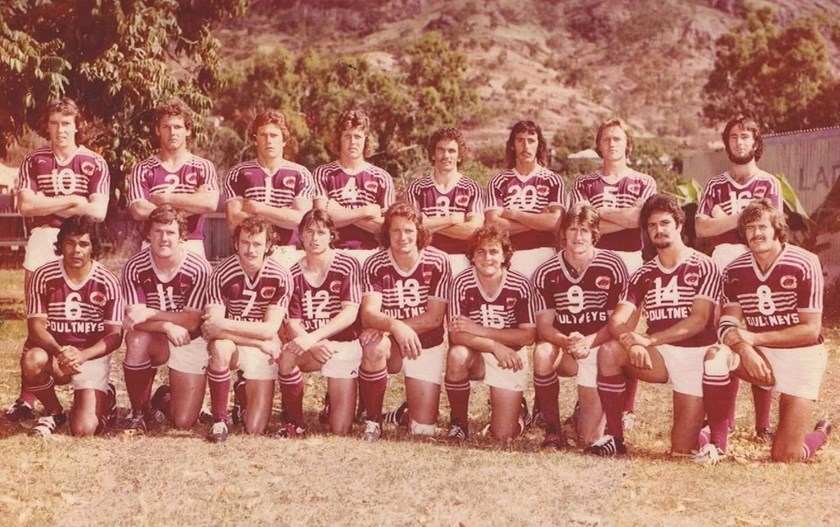
“As I grew up I thought that was just a normal thing, and back in my era when I grew up it was.
“A lot of Indigenous kids were brought up by non-Indigenous families because they weren’t allowed to do this or that … or struggled in life. In other cases they just had their kids taken away from them.”
Scott said his foster mother was a wonderful woman and a true friend to his birth mother.
“When I think about it I think ‘what a great friend and a great person’.
“I know there are a lot of negative things said about our non-Indigenous community but I’d like to think that we have great people in that community who help our Indigenous community.”
‘I don’t know who my father is’
“The other part of my story is that I don’t know who my father is. I was born in Charters Towers and on my birth certificate it has got ‘father unknown’.
“I never got around to talking to mum about it. At the back end of my playing career I said ‘Mum, I want to find out who my father is and I am coming up next month’.
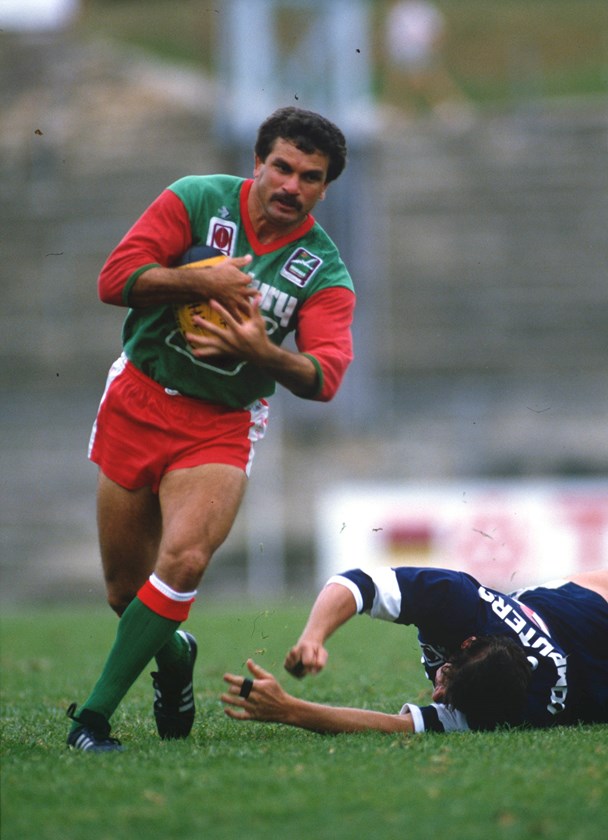
“She said that was OK. I went up there and she went into hospital and passed away so I didn’t get the opportunity to ask her who it was.”
It was rugby league, and men like Arthur Beetson, Bob McCarthy, Des Morris and Wayne Bennett that gave Scott’s life direction.
“I never had a father figure but my fathers were my coaches,” he said.
“That is the great thing about sport. You meet really good people that are there for you during your career.
“Gene’s father Tom was great to me and all my other friends’ fathers were fantastic. I call them all ‘dad’ because they were father figures for me and pulled me into line and gave me advice.”
Learning from mistakes
Scott has seen plenty of ups and downs in his life. In 2007 he went to jail for several unlicensed driving offences.
“It was my mistake and I put my hand up. If you do that you will get through life. If you keep making excuses for why you do things then it is not going to work,” he said.
That ethos of learning from mistakes and helping others through their life journey that keeps him grounded and strong.
He has given back to the game that gave him so much as a successful coach of the Isis Devils and the Maryborough Wallaroos.
As Scott looked back on his life there was a sense that his reflections were good therapy as much as a great story of triumph over adversity.
For a young lad that held the Hermit Park State School record for wagging he has certainly come far after leaving Townsville at 19 to follow his rugby league dream.
“Every player has their story about how they got there,” he said.
Wayne Bennett said that football is a lot like life, and that is just so true.
“Growing up in Townsville as a scruffy kid I think about my story and look back and think to myself ‘wow, how did I do that?’
“I only went to Year Nine. I always say to kids to make sure you turn up to school because if you don’t have sport you will need it to get on with life.
“I have knocked around with the good and the bad and the thing I pass on to the young ones is to learn from your mistakes and choose your friends wisely.
“The reason I want to make sure kids play sport is because it builds toughness into you and gives you a purpose.
“Going out there and giving your best takes your mind off all the negative stuff.”
Optimistic outlook
Scott has a lot to look forward to in the months ahead, and it is all positive.
“This is the 40th year of Origin and the Carbine Club has organised a reunion at the Cricketer’s Club. All the players are going and that has given me something to really look forward to,” he said.
“I have spoken to Geno about doing a talk this year at the annual FOGs function and he said ‘Scotty, you would be perfect because you played in the first Origin and after 40 years you could do it on behalf of yourself and Arthur’.
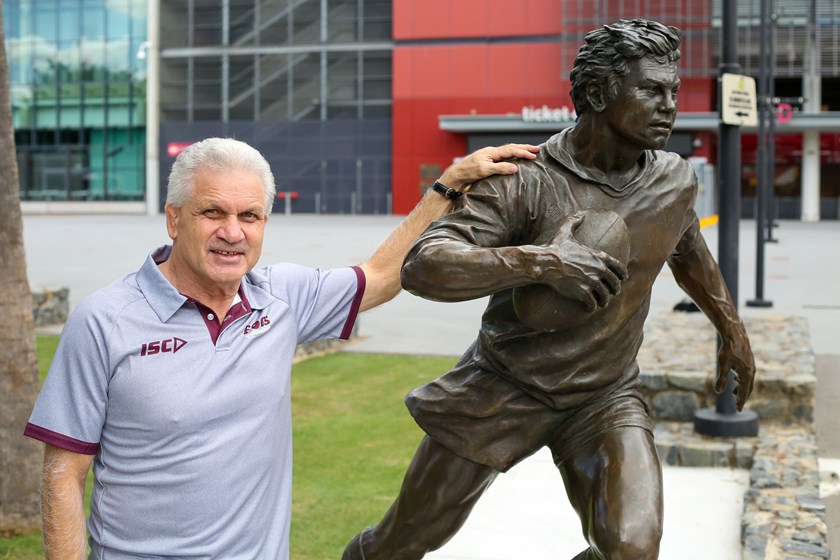
“During my speech I also want to recognise our non-Indigenous community that have supported our Indigenous community.”
It will be a speech no one would want to miss.
Rugby league proved to be Scott’s saviour as a youth. After he celebrated his 60th birthday on Sunday it is also his salvation today.
The game gave him the tools to beat depression and face his latest battle with inner strength beyond measure.
“Sport saved me as a person,” Scott said.
“It taught me about discipline and having a strong mind and going out there and doing your job. Wayne Bennett said that football is a lot like life, and that is just so true.”
Help is available 24/7 for anyone who has mental health issues by calling Lifeline Australia on 13 11 14
For further information on the NRL State of Mind program, click here
